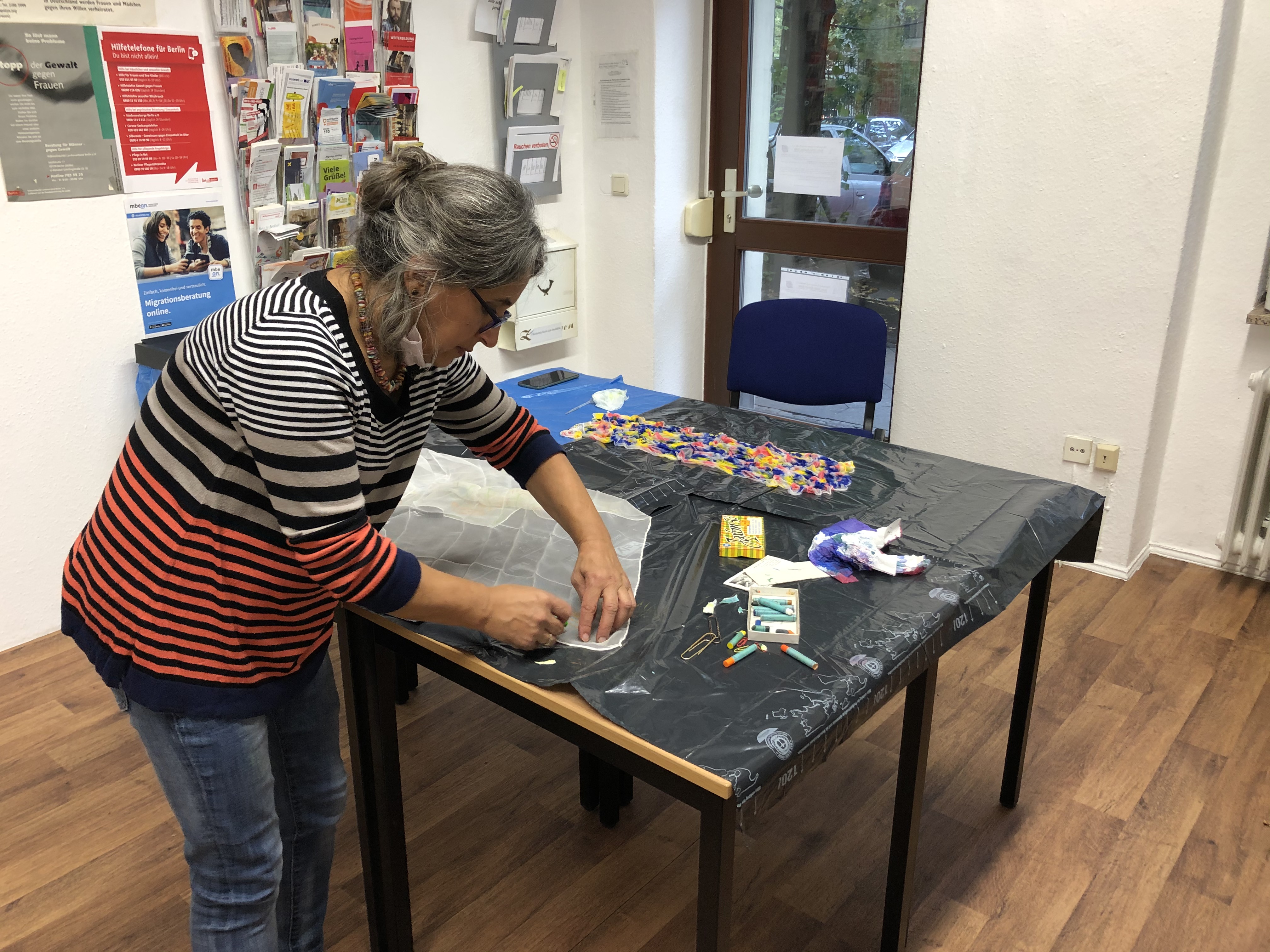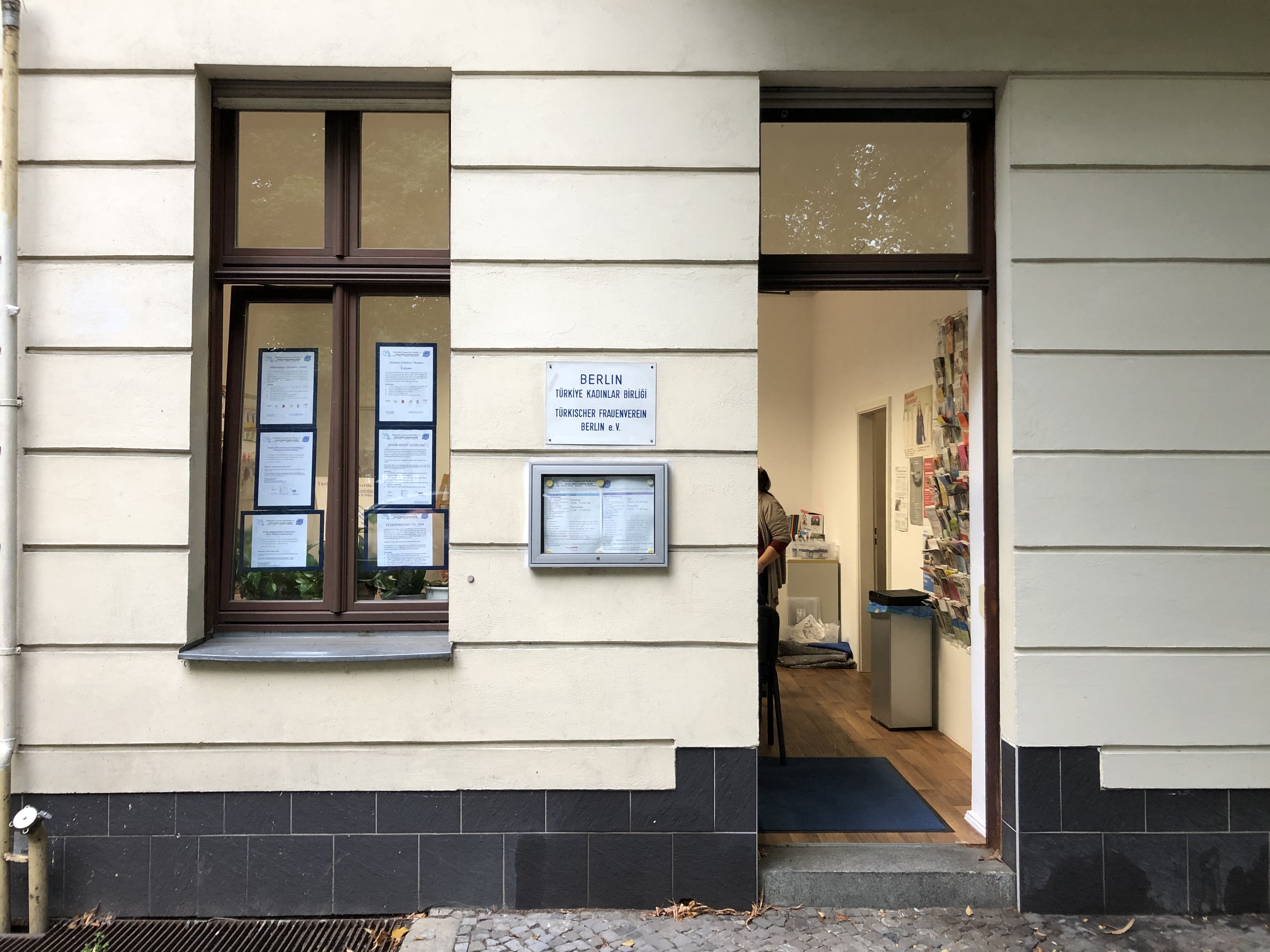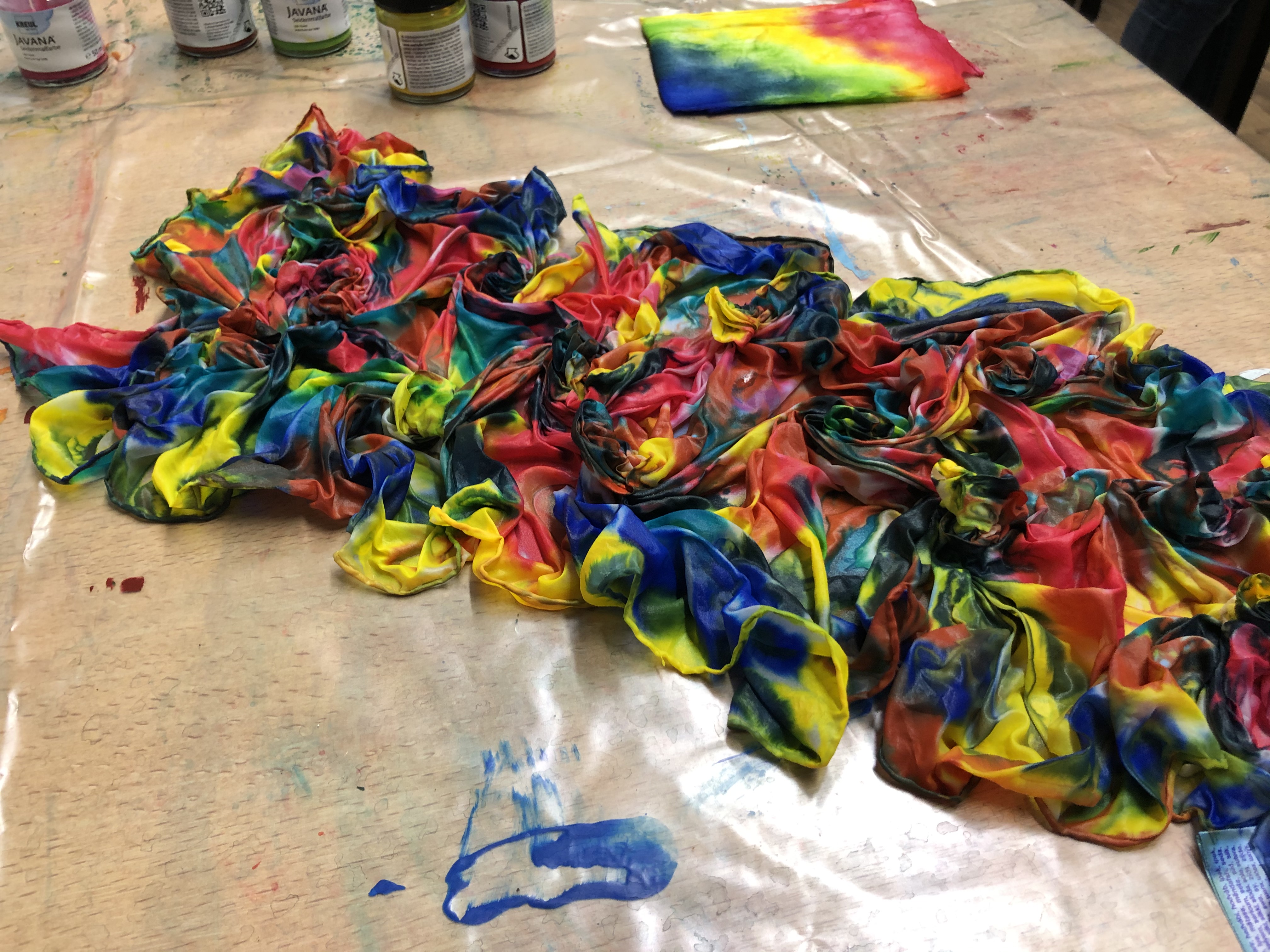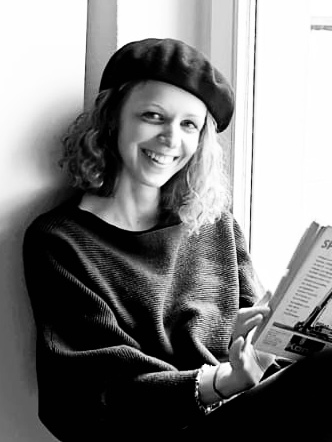The Turkish Women’s Association in Berlin-Kreuzberg was founded 45 years ago by guest workers. Their daughters and granddaughters grew up and went to school in Germany – and yet they often suffer from the feeling of being foreign.
by Leonie Düngefeld
“We are now living here in the second and third generation. But the problems that existed for the guest workers in 1975 still exist, of course.”
“Who should decide who you marry?” is written in bold red letters on a poster on the wall. A square room with three large tables, an ironing board in front of the back wall, wooden easels leaning against each other in the corner. Bright light shines from two long, fluorescent tubes on the ceiling. People who could decide who you marry: Your uncle? Your father? Your siblings? Your mother?
The tables are covered with plastic sheets. On them are small jars with purple, pink and blue paint, next to them brushes and pipettes. Four women bend over the tables and distribute the paint with the pipettes on white silk cloths. Dots, stripes, and flowers. Gülsüm is wearing jeans and a striped pullover, her long, grey hair is tied in a loose braid. She looks concentrated as she spreads yellow paint on a folded cloth. The 57-year-old is one of the five chairpersons of the Turkish Women’s Association in Berlin-Kreuzberg. Today, the association has invited people to a creative workshop in its rooms near Hermannplatz: Silk painting.

Women from Turkey founded the association in 1975 as a self-aid group. They had come to Berlin as guest workers. “The state was not well prepared for this,” Gülsüm says. “They only wanted people’s labour, nothing else.” To help each other in everyday life, the women got together. “There were literacy courses, German courses, sewing courses, typing courses…” Together with a colleague, Gülsüm reflects aloud. She herself came to Germany from Turkey with her family when she was seven years old and became a member of the Women’s Association in 1980, when she was a teenager. For children there were dance groups, homework help, and a choir.
Since 1979, the association has been receiving financial aid from the local government of Berlin, the German Federal Office for Migration and Refugees (BAMF) and a parity federation. Four women can now work full-time for the association. They are certified social educators and advise members on parenting, domestic violence, finding a flat or a job. Together with volunteers, they offer handicraft workshops, discussion groups and seminars on health and integration issues. About thirty women regularly come to the events, the number of members is much higher. The association is networked with other organizations and umbrella associations and is also politically engaged.

When Germany concluded the recruitment agreement with Turkey in 1961, setting out the conditions under which Turks were allowed to work in the Federal Republic, it was assumed that the guest workers would eventually return home. Initially, long-term residence was even explicitly forbidden. However, many stayed in Germany, and if the parents did return, often their children stayed. A lot has changed since then. “Just look at the name for these people: Back then they were guest workers, today it is ‘people with a migration background’” says Gülsüm. “We are now living here in the second and third generation. But the problems that existed for the guest workers in 1975 still exist, of course.”
“My impression alone is enough to know whether I am accepted or not.”
Gülsüm spreads a little paint here, puts a new silk cloth there on the table, shows the other women silk cloths that she painted 25 years ago. At another table, a woman bends over a silk cloth stretched in a wooden frame. On it there are yellow flowers. With a brush she spreads light blue paint on the areas between the flowers. “You have to wet the cloth first,” Gülsüm calls out loudly as she looks over. “Then the paint will flow better.”
Little has changed for the Turkish community with regard to political participation and to the missing feeling of belonging. Gülsüm and her colleagues talk about their experiences at school, when looking for a flat, and in everyday life. They describe situations in which they felt alienated and excluded because of their appearance, their name, their accent. “They don’t even have to say ‘You don’t belong here’,” says Gülsüm. “My impression alone is enough to know whether I am accepted or not.”
As a child, she used to play with German children on the street in the neighborhood of Kreuzberg. Then, little by little, the German families moved to other districts. “People who call themselves alternative or Christian, who talk about charity, move out of Kreuzberg to prevent the children from going to school with migrant children,” Gülsüm complains. “And their children later become academics. They have no relationship to the base, to the people. Because they haven’t lived together.”

She tells of a neighbour with whom she lived in the same house for years. They were pregnant at the same time; their children went to the same kindergarden. “Although I always greeted her in a very friendly way, nothing ever came back,” Gülsüm says. One day in kindergarden, that woman asked for more to be done for integration. “And I thought: If you want to do something for integration, then you should start with yourself. This display, it doesn’t do us any good. It’s not sincere.
So how can we truly achieve integration? “I don’t have a recipe for it,” says Gülsüm, shrugging. “Maybe by emphasizing that we’re a multicultural society. Germany is a country of immigration, that’s a fact. Why can a British or a French person have dual citizenship and not me? Me, who grew up here?” That needs to change, she says, only then can we talk about real integration. “Integration is not a one-way street. It is two-way,” she says. “I give my best to learn, but I also want to be seen.”
“Integration is not a one-way street. It is two-way,” she says. “I give my best to learn, but I also want to be seen.”
Gülsüm folds silk scarves on the ironing board, then wipes the paint residues off the table with a paper towel. Her colleague sits next to her and talks about what the Turkish Women’s Association stands for politically: “We demand equality. Equal voting rights. And a legal quota for women. Because whether migrant or non-migrant, women are not treated equally in Germany either. “We don’t just want to be seen, we also want to have a say,” explains Gülsüm. A girl in a jeans jacket looks confidently from the poster on the wall. Who decides who you marry? “Me!” is written in red and bold letters in a speech bubble next to her.

Leonie Düngefeld is a journalist based in Berlin. She is currently doing a traineeship at KULTURAUSTAUSCH magazine and works as a freelance writer on topics such as climate, migration and politics.
